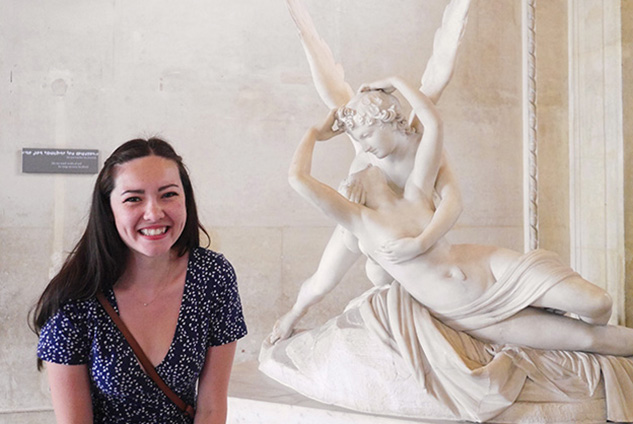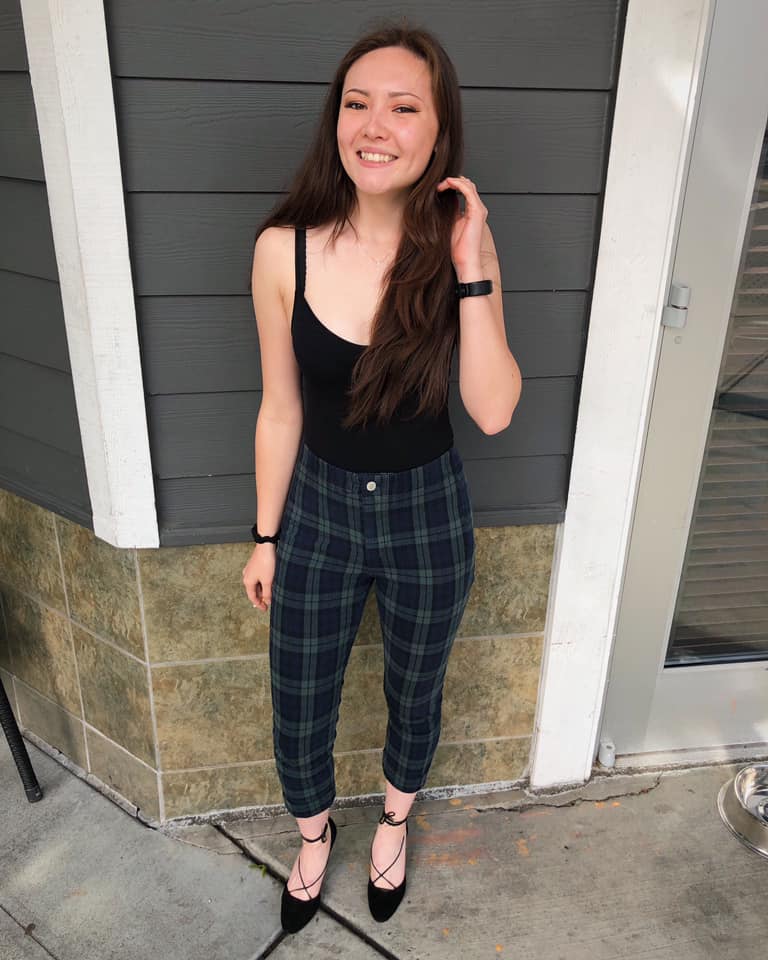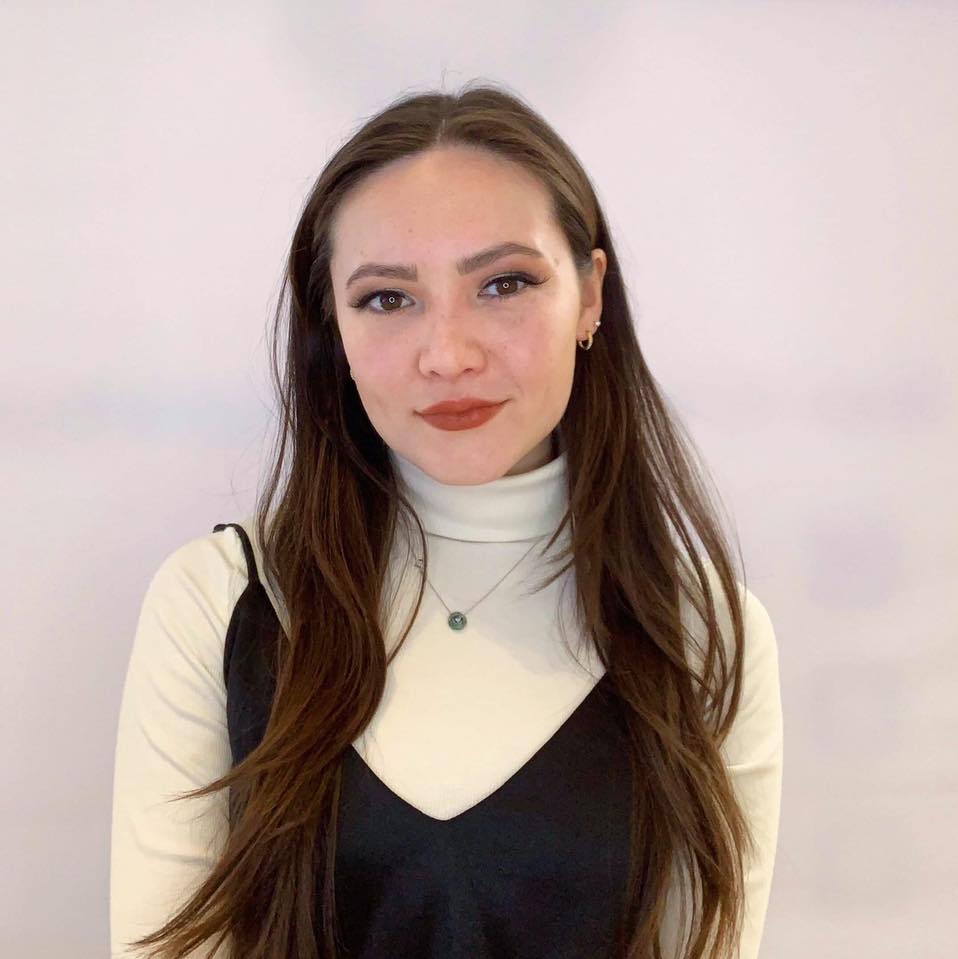My Journey Through Bi-Racial, Bi-Cultural Feminism

Source:Catrina Yang Farrell
Today when people look at me, they see “American,” likely because they see “white.” When people talk to me, they hear “English” with an “American” accent. What people don’t see is that I am Taiwanese and American, born and raised in Taipei Taiwan. Moving to America altered my perspective and understanding of race and what it means to be categorized and what it means to be privileged. More than anything, however, it showed me the vast loneliness of being cast as only half of your identity.
Views
My Journey Through Bi-Racial, Bi-Cultural Feminism
By Catrina Yang Farrellweb only
Combatting the fetishization of the Asian body in a Western setting and the hyper-visibility of the Western body in an Asian setting as a Bi-Racial and Bi-Cultural woman.
My first word wasn’t mom, dad, yes or no. It was the Chinese word for cute, 可愛. As a child, my parents or I were constantly approached by strangers to have my photo taken or to model. It wasn’t because I was particularly pretty, it was because I looked American. And each time someone approached they called me cute, I heard the word so often that they were the first words I spoke. Thus, I realized from a young age that my pale complexion and dominantly western features allowed me certain privileges that I would not have received otherwise. Despite being bi-racial I have always physically appeared to be more American than Taiwanese. This led to the hyper-sexualization and hyper-visibility of my body.

During the summer of 2016, when I was 16 years old and living with my parents in Taipei, I was harassed on a local bus by an elderly man. He said hi, asked me where I was going, told me I looked pretty, asked me where I was from. I was surprised by how well he spoke English but ignored him. He continued and he said: “I bet you’re French, they’re known for wanting to have fun, why don’t we have some fun.” Irritated and offended, I refused to respond, or to give him the attention he so desperately wanted. Within a few minutes, I noticed his phone pointed at me. He was smiling at me then at his phone. At this point I was beyond uncomfortable, I felt dirty and scared. I looked around the bus hoping someone else had noticed, hoping someone would intervene, and while many other passengers seemed to share my discomfort, I could see they did not share my fear. Their concerned glances never translated into actions on my behalf. The next stop was still a little way away, so I moved to the back of the bus where he would not be able to see me unless he turned around and approached me. From where I stood, I saw a photo of myself on his screen. The photo captured my whole body from the back, you could see the side of my face looking out the window-- he had sent my picture to a group chat. The dress I was wearing felt less cute, the effort I put into looking nice felt… wrong. I got off at the next stop and hurried away. I never saw him again.
My reaction devastated me. I not only felt disappointed for not standing up for myself but felt angry that no one had acknowledged the incident.
My Asian values told me that I had done the right thing by not engaging; I had no reason or right to be upset. The man did not touch, threaten, or follow me; all he did was speak to me in an inappropriate manner. I was overreacting. In contrast, my American values were telling me that I should have stood up to the man who was sexually objectifying me, that I was not reacting strongly enough towards what had happened. I was stuck between two ways of thinking and happy in neither.
Today when people look at me, they see “American,” likely because they see “white.” When people talk to me, they hear “English” with an “American” accent. What people don’t see is that I am Taiwanese and American, born and raised in Taipei Taiwan, and lived there until I moved to America for college. Moving to America—and in particular Seattle, Washington and Boston, Massachusetts—altered my perspective and understanding of race and what it means to be categorized and what it means to be privileged. More than anything, however, it showed me the vast loneliness of being cast as only half of your identity.
Don’t get me wrong-- it wasn’t that I had never experienced these concepts in Taiwan; the difference was I was facing the challenge of being categorized in a country whose landscape was born and shaped by racial caste systems. I began to question the power and privilege linked to the color of my skin and the lengths to which the same privilege is associated with historical baggage, which I had not experienced or fully understood while growing up in Taiwan. As a result, I felt the constant urge to inform those around me that I am not what I appear to be.
During my first year in the US, I found myself continuously asking for clarification and definition of what seemed to be very basic information. For example, I clearly remember asking how the mortgage system worked as in Taiwan many people I knew rented rather than bought homes. I understood the overarching complexities of the class system, but I could not understand the simplest of things, thus that many of my peers judged me, as they all assumed, I had lived in America my whole life.
I felt like an outsider, always a step behind.
I found this issue was not only present in my academic circles but also in my social life. Another example, my friends would talk about going to Applebee’s, yet I questioned if they were referring to a toy store, bookstore, commercial, or a clothing brand. This only increased my feelings of alienation. I constantly needed an explanation, yet each time I opened my mouth for clarification, I felt silly.
Eventually, I stopped asking questions in both circles. What frustrated me the most was that physically I appeared to fit in. I was not a minority but part of the majority and thus, felt guilty for feeling out of place. Many people, especially in Asia, wish they appear more Caucasian, and in contrast, many resent the privilege which comes with being Caucasian. On the other hand, here I was wishing I appeared more Asian just so I could fit into a community that I identify with.
The dilemmas I faced confused me. Reflecting on the incident on the bus, I realized that my understanding of Western feminism is based upon openly advocating for equal rights and shutting down any form of sexism, whether it is verbal or physical. Yet my life in Taiwan has taught me being outspoken is considered rude, aggressive, and off-putting to Taiwanese people. In a culture built upon avoiding interpersonal conflict, speaking up to defend a teenage girl might be seen as intrusive.
Thus, when I was confronted with being miscategorized in college, I felt silence was the best option. Both incidents forced me to realize that, as a bi-racial and bi-cultural woman I cannot bisect myself, I cannot hold up one side of my values and expect others from another culture to follow blindly.
Today is the first of May 2020. I sit in the MRT (Mass Rapid Transit) in Taiwan with a medical face mask on, seas of emotions are hidden behind this thin shield. More than anything, I am thankful I am not in Boston, Massachusetts on the T. The xenophobic and racist attacks on Asian’s in America—and around the world—have left me once again conflicted.
I imagine for a moment that I am standing in a subway car in Boston. As the train slows to a halt and the doors slide open a middle-aged Asian woman steps into my metro car. Some people noticeably shift in discomfort while some move—placing more distance between them. The woman wears a mask and does not make eye contact. Someone whispers under their breath, “Do you think she has it?” Someone else covers their face with their scarf. The woman gets off at the next stop and the bodies in the car all heave a sigh of relief.
Yet, no one is suspicious of me. I was home in Taiwan for winter break, only a few months ago. Many of my Asian friends in America, let alone Boston, have not been back to Asia in years or have never left America before. What would they do if they had known where I was in January? What would they do if they knew I was half Chinese? What would they do if I looked Chinese? What would I do if that situation was not imagined?
Perceptions of who I am will never change. And while I have come to accept that I am often misperceived, it does not alter the internal conflict that arises when I am miscategorized or sexualized by either my white or Asian heritage. Especially now, I am aware of how my body is visible in some cultural contexts, while not in others.
Being caught between these two perceptions has opened my eyes to the depths and complexities of historical, cultural and sexual oppressions. This has only become more evident during the current COVID-19 pandemic as xenophobia has reached new heights around the world, yet once again my pale complexion has granted me safety in these trying times.

Catrina Yang Farrell is a Taipei American School Alumni who is currently attending Simmons University in the United States. She is pursuing a BA in Literature with a focus on American minority experiences.






